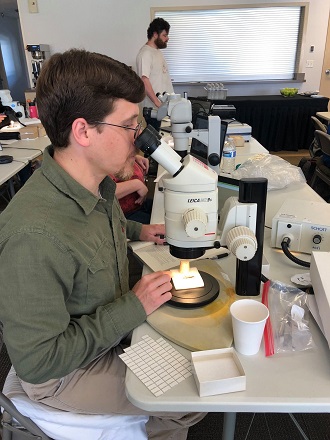Oregon State researchers say they are developing new technology
Researchers in the Oregon State University College of Engineering
now say they are developing technology to convert wastewater into a product that would simultaneously irrigate and fertilize crops.
The three-year project led by Xue Jin, assistant professor of environmental engineering, will be supported by $750,000 in funding from the U.S. Department of Agriculture and will involve partnerships with farmers, wastewater treatment plants and USDA scientists.
“Agricultural activity accounts for 70% of all available freshwater,†Jin said. “Worldwide, demand for food production continues to grow along with the population. As droughts become more frequent and severe, there is a critical need for effective treatment technologies that provide safe reclaimed water for agricultural irrigation.â€
The project also aims to reduce reliance on chemical fertilizers, which are produced by mining and manufacturing processes that consume limited natural resources and create significant environmental impacts. Further impacts occur after fertilizers are applied to fields.
“Fertilizer runoff is a major source of pollution for surface water,†Jin said. “This results in algal blooms that contaminate drinking water sources and produce further harmful ecological effects downstream.â€
The researchers are developing a two-stage, hybrid membrane filtration technology to treat the murky liquid discharge from anaerobic digesters, a type of bioreactor used in water treatment plants and on some larger farms. The digesters rely on bacteria to break down organic matter in the absence of oxygen.
In the first stage, an electrically charged membrane attracts ions such as ammonium, phosphorus and potassium and concentrates them into a fertilizer-rich brine. In the second stage, a forward-osmosis membrane removes contaminants such as bacteria, and the bacteria-free water is then recombined with the brine to produce a nutrient-enhanced solution that can be applied to crops.
A D V E R T I S E M E N T

A D V E R T I S E M E N T
“In laboratory-scale testing, we were able to recover 80% of the water,†said Quang Ngoc Tran, a graduate student who has been a key participant in the research. “When the technology is scaled up with optimal operating conditions, that number could go even higher. The output is basically pure water, with a little bit of dissolved salts that are the plant nutrients.â€
Tala Navab-Daneshmand, an associate professor of environmental engineering at Oregon State, and David Bryla, a research horticulturist with the USDA Agricultural Research Service in Corvallis, will conduct greenhouse studies to evaluate both the effectiveness of the treated water in plant growth and the biosafety of the resulting crops.
OSU says the team will also perform economic feasibility studies. Jin says the technology could potentially be deployed directly on farms that operate their own anaerobic digesters, or even on high-tech vertical farms situated adjacent to municipal treatment plants. Vertical farming refers to growing crops in stacked layers rather than just using the ground.
“We are examining multiple prospective use-case scenarios,†Jin said. “The fiscal impacts of this technology will prove to be a key consideration in whether it becomes widely adopted. The goal is to make agriculture more sustainable not just environmentally but economically as well. If we can develop an affordable system that will effectively reduce the costs of crop production, that could be very attractive to farmers.â€
--Keith Hautala| Post Date: 2023-07-18 19:12:50 | Last Update: 2023-07-18 21:43:12 |







